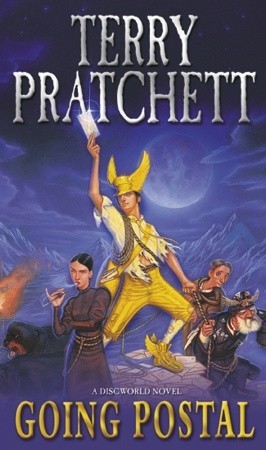 Today I'm really excited to welcome Rob Lloyd Jones, author of the forthcoming children's book Wild Boy to My Book Journey. Not only is the cover for this book absolutely stunning, but I'm currently reading Wild Boy and it is fab!! Set in dark and dangerous Victorian London, Wild Boy is considered a freak and a monster. But with his own special skill of detection, he is sure to get caught up in a whirlwind of adventures!
Today I'm really excited to welcome Rob Lloyd Jones, author of the forthcoming children's book Wild Boy to My Book Journey. Not only is the cover for this book absolutely stunning, but I'm currently reading Wild Boy and it is fab!! Set in dark and dangerous Victorian London, Wild Boy is considered a freak and a monster. But with his own special skill of detection, he is sure to get caught up in a whirlwind of adventures!I'm really excited to hear Rob's perspective on writing and forming story ideas. So Ladies and Gentlemen, without further ado, and with a drum roll, read on to find out...
Where Ideas Come From
Hi and thanks for having me on My Book Journey.
I don’t get asked many questions. I’m pretty new to this, so I don’t have a lot of advice to offer. Also, I suspect there’s something about me that suggests I might not give good answers. I mumble and fidget when asked about anything important. Or I pretend to need the loo and flee. There’s one question, in particular, to which I always mess up my reply. So I thought I’d take this opportunity to write it down for the record. Now I can simply direct anyone that asks to this blog.
The question is, of course, where do I get my ideas from?
Just because this is asked a lot of writers doesn’t make it a bad question (if there’s such a thing as a bad question). Different people will give different answers, yielding new and interesting advice. So ask it as much and as often as you can.
Usually writers offer smug, rehearsed replies to this question. So here is mine: Where do my ideas come from? My brain.
I was never much good at science, but I think that’s where ideas come from.
That sounded very smug didn’t it? Sorry.
The point, though, is this: everyone has ideas. They are not a divine privilege of writers, just as not only philosophers are allowed to think. We all have ideas, all the time. You’re probably having one right now. The only difference between writers and other people are that writers write their ideas down.
So always - always - carry a pen. Your mind is a motorway, where ideas flash past way over the speed limit. Some of them aren’t much to see – dented old saloons towing rusty caravans. But every now and then – vroooom – there goes a Ferrari!
And if you don’t write that down you’ll forget it was ever there. No, it’s worse than that – you’ll remember it was there but you’ll forget what it was.
Write it down!
There are ways to jump-start good ideas (okay, enough with the cars stuff already). Look around you, for a start. Pay attention. Even the most humdrum everyday things might throw up an interesting story idea. As you look around ask ‘What if?’ What if one of those puddles in the park wasn’t a puddle at all, but a watery hole that sucks you down to somewhere incredible? What if the kitchen oven started speaking to you? What would it say? What if, flicking through a book, you saw a photo of yourself? Only it’s a history book and the photo was taken over a hundred years ago...
Speaking of history, what a treasure trove of ideas that is! Read about pirates, knights, spies in wars... At school you need to remember what reallyhappened. But now imagine what might have happened. What if there was something else living in no-man’s-land between those two armies?
That’s how I stumbled across the idea that became my first book. I was reading about Victorian England (one of my favourite subjects) and, in particular, the travelling freak shows that toured the countryside. I remember writing down two questions.
What if one of the freaks - a boy covered in hair? - spied on people for clues to the outside world? Would he be a detective?
To be honest, I knew immediately that I had to tell this boy’s tale. I was never going to forget that particular idea. But, once it was written down, itcouldn’t be forgotten.
Sometimes our ideas turn out to be a bit wobbly. Flicking through my notebook, I’m always cringing with embarrassment that I had this or that thought. But then, occasionally, my fingers tighten around a page, and I think, Oooh, that was a goodun. Maybe I’ll never do anything with it, but it would have been lost forever if I hadn’t written it down.
So if you have an idea – and you have loads! – don’t waste it. Write it down. One day it could change your life.
Wild Boy will be published on April 4th 2013 by Walker Books.
For more information about Rob or his other children's books, you can find him on Twitter.
Don't forget to visit Clover at Fluttering Butterflies on Friday for the next instalment of the Wild Boy blog tour!


